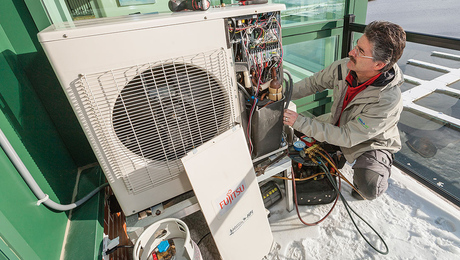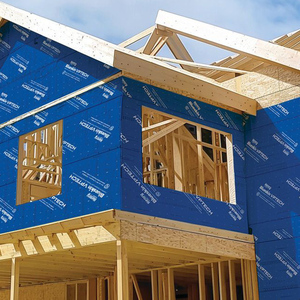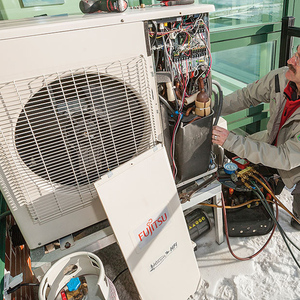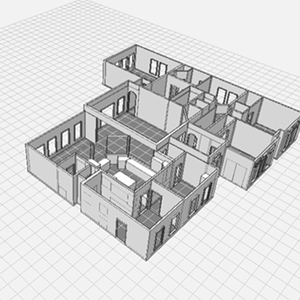Cast Iron Waste Pipe is suspended from basement ceiling joists and is rusting and seeping around an elbow. I READ that this can be a DIY project and the pipe can be cut with a recip saw and the bad section replaced with PVC. OK to DIY or hire a plumber?
Discussion Forum
Discussion Forum
Up Next
Video Shorts
Featured Story

Self-installing an HVAC system requires a lot of thought and planning.
Featured Video
SawStop's Portable Tablesaw is Bigger and Better Than BeforeHighlights
"I have learned so much thanks to the searchable articles on the FHB website. I can confidently say that I expect to be a life-long subscriber." - M.K.
Fine Homebuilding Magazine
- Home Group
- Antique Trader
- Arts & Crafts Homes
- Bank Note Reporter
- Cabin Life
- Cuisine at Home
- Fine Gardening
- Fine Woodworking
- Green Building Advisor
- Garden Gate
- Horticulture
- Keep Craft Alive
- Log Home Living
- Military Trader/Vehicles
- Numismatic News
- Numismaster
- Old Cars Weekly
- Old House Journal
- Period Homes
- Popular Woodworking
- Script
- ShopNotes
- Sports Collectors Digest
- Threads
- Timber Home Living
- Traditional Building
- Woodsmith
- World Coin News
- Writer's Digest


















Replies
You were told wrong.
First off, cast iron pipe will laugh at the usual reciprocating saw blades. Then there's the question of how to piece in the PVC. While a rubber fitting might be fine for a TEMPORARY patch, it's no substitute for a proper repair.
Finally, there's likly other sections just waiting to leak.
Call a plumber. He'll tell you what options there are. He has the tools and training to make a proper repair, quickly. He's worth every penny.
cast iron plumbing repair
Thank You. I will call a plumber.
I've never had a problem cutting cast iron with a recip. saw. Or you can rent a chain cutter; you don't have to turn it all the way around because it has multiple cutting wheels. You can saw out a section or a fitting and replace it with approved plastic
DWV pipe (either pvc or abs) . You make the connections with no hub connectors which are approved for this purpose. When cast iron is required nowadays it is assembled with no hub connectors.
Cast Iron Waste Pipe
Thank You. I like your answer better. I'll probably decide whether to DIY it or hire a plumber based on how much a plumber will charge to do it.
jim
I'd base my decision on the amount of latent poop is in that pipe.
There's also the question of how happy the wife and kids will be pooping outside for several days.
Cast Iron Waste Pipe
Calvin,
Your advice has always between spot on so I know that you will be able to answer this. In order to make my decision how can I tell how much latent waste is in the pipe before I cut into it?
First off Jim
Realize that any answer I give on this subject will be slinging shit.
If it's been there X number of years and has just the proper slope-
You multiply number of years x 365 x number of flushes per day of solids/grease/hair/etc/etc/etc and divide that by the coefficient of slim left over after the fact.
That can then be interpolated to inches or mm of gunk.
Remembering of coarse, that rate of flow started to deteriorate the minute rust first appeared.
Cast Iron Waste Pipe
Hi Calvin,
You may have to dumb this down for me.......It's been a long time since I've had to do this much math. Plus I don't think they have the records that go back to when the house was built. Should I just put on a hazmat suit, clear the house, and go for it?
Doesn't much matter -- when it comes out you'll catch it, one way or the other.
jim
In other words-beats the heck outta me.
Could be alot, could be a little. If recently in use-it'll be a slimy mess. If old and dried out, a flacky mess.
Have something to catch the crap and a visqueen safety sheet on the floor. Remember this stuff is HEAVY. Rig a way to lower it at b/4 you cut it out. How long of a pc. are you removing.
Cast Iron Waste Pipe
The rust is on the male pipe going into the elbow. The bend angle is fairly gentle....maybe I can find PVC with that angle? The supports which are holding the pipe are metal rods. I'm thinking that I will need to remove 2 to 3 feet. I will support the pipe on both sides of both cut points. If you want to stop by and give me a hand I'll supply the raincoats, boots, and beer.
And be aware that this piece may be supporting any vertical stacks that run into it. If you have such, make sure they're well supported before you cut.
Cast Iron Waste Pipe
The rust is in a horizontal run, the area is wide open, the basement is unfinished, ceiling is open to the joists, and easy to work in.....otherwise I could really justify paying a pro to do it.
Several years ago I was getting a house that I own ready for new renters. There were some cast iron drain issues so I had the drains cleaned (by a licensed plumbing company). One waste line needed to be replaced, and time was of the essence. The drain cleaning guy gave me a price (normally I would do it myself) and I agreed so that I could get it done ASAP. He proceeded to spend one whole day under the house trying to cut the pipe with an angle grinder. I could see that this was going to take forever. I called the owner of the company and he told me the guy was a flake and had no business doing the job (it turns out that he was doing it on his own). I told him he was fired. Long story short I did it myself. Cut the pipe with a cordless recip. (I went through more batteries than blades.) The whole thing took a couple of hours.
Moral: don't try to do it with an angle grinder.
Cast Iron Waste Pipe
I've got a corded recip saw....or there's a rental place close by where I can rent a pipe cutter.........IF I decide to do it myself. I'm not looking forwarded to doing it myself to it but if a plumber is really expensive I will. What brand of recip saw blades do you like? I remember a magazine (FHB?) article that did a test and comparison of demo recip blades.
Actually, an angle grinder can work just fine. I just did that exact thing; cut out a 4 foot section of rusting 4" cast iron pipe and replaced it with PVC. It took about 1 minute to cut the cast iron at each end; much quicker than cutting through the equivalent thickness of steel, and no rattling like you would get with a reciprocating saw. I used a cheap 4" angle grinder. Just be sure to wear a good dust mask, as you will aerosolize a bunch of fecal matter in the process.
cast iron pipe
Thank you. Good to know there is another option for cutting the pipe. Cheap tool as in Harbor Freight?
Same here. I use an angle grinder with a $9.99 diamond blade. Eats cast iron for dinner and doesn't shake everythng
in the pipe loose.
Jimmiem- assuming you don't know what you're doing but have some decent DIY skills the whole job shouldn't take you an hour to do. You need 2 Fernco fittings, pipe, an angle fitting and some glue.
And a nearby hardware store or home center, preferably one that's well supplied and has late hours.
Why would that be? Did I leave something off my list that you've needed all the times you've done this job? Do you typically start jobs like this late in the day?
You could easily discover that the pipe is more rotten than you thought, going back into a joint, and need more fittings.
I guess that the guy with the angle grinder in my story was more of an idiot than I thought. Maybe he was under the house all day doing something besides cutting pipe.
A regular metal cutting grinder blade lasts about 2 minutes cutting cast iron pipe so he would have been spending a lot of time changing blades.
flo
Is there a label to look for on that diamond blade for the cast? I'm familiar with the segmented blades for masonry and the non for tile.
thanks.
I once helped convert an older house into an office. The remodel resulted in a complete change to the plumbing layout The plumber had put in all new lines, and simply abandoned the old cast iron in place. I had to remove this mess in order to do my job. It was my first time working with cast iron.
I found the Saws-it-all blades would last just long enough to put a slight score on the pipe - and then the teeth were shot. Oddly enough, this prooved enough that a solid hammer strike would cause the pipe to break clear around, in a surprisingly straight line. I don't know if this is normal, or just a quirk of this job.
In hauling the pipe out, some sections fell apart (while handling) in unexpected locations, places where the pipe was not nearly as solid as it looked. Some sections were clear and almost feather-light; others had quite a bit of "mud" inside.
I did not think to try the smooth diamond wheel I have for my grinder- but it might have worked. I did learn from the parts house that you're supposed to use a carbide-grit blade in the saw for cutting cast iron.
Look, plumbing is called a 'skilled trade' for a reason. With the rates plumbers charge, everyone would do it were it so easy. I remember Rush Limbaugh, in the earlier years, complaining that his plumber took vacations he could not himself afford! There are plenty of details to watch for, and lots that can go wrong.
If at all possible, I'd forgo the 'savings' and just call a plumber.
Cast Iron Pipe
I tend to agree with you about just letting a real plumber do the job but I'm still trying to get over my last experience with a plumber and I'm sure you want to know what it is so here goes. I needed to fix a shower mixing valve and bought the parts which included a schematic. I was hesitant because there was no shutoff for the shower which meant shutting down the whole house at the water main. I figure that if I ran into a problem the whole house would be out of commission until I got the mixing valve fixed. So I called a plumber and he showed up with the entire mixing valve and a helper. Plumber said the whole valve didn't need replacing, just the innards (seals, washers, whatever)....same parts that I had bought from the manufacturer and was told by a tech that that would be all that was needed. The bill was $425. I thought it was quite expensive and called the office the next day to ask why so much and in particular why a second man was on the job. I was told that the helper was there in case the plumber needed him to fetch something from the truck. I understand that time is $ but the plumber's office is 3 miles from my house so there wasn't a lot of travel time and the job was done in 1/2 hour.
Cast Iron Pipe
I tend to agree with you about just letting a real plumber do the job but I'm still trying to get over my last experience with a plumber and I'm sure you want to know what it is so here goes. I needed to fix a shower mixing valve and bought the parts which included a schematic. I was hesitant because there was no shutoff for the shower which meant shutting down the whole house at the water main. I figure that if I ran into a problem the whole house would be out of commission until I got the mixing valve fixed. So I called a plumber and he showed up with the entire mixing valve and a helper. Plumber said the whole valve didn't need replacing, just the innards (seals, washers, whatever)....same parts that I had bought from the manufacturer and was told by a tech that that would be all that was needed. The bill was $425. I thought it was quite expensive and called the office the next day to ask why so much and in particular why a second man was on the job. I was told that the helper was there in case the plumber needed him to fetch something from the truck. I understand that time is $ but the plumber's office is 3 miles from my house so there wasn't a lot of travel time and the job was done in 1/2 hour. Also, the plumber gave me the rest of the unused parts of the mixing valve and said I might as well have them because I was being charged for the whole thing anyway. How come I could buy a rebuild kit from the manufacturer but the plumber brought and charged me for the entire valve instead of using the manufacturers rebuild kit?
Leaks in Cast Iron Inevitable?
Why not just repack the elbow? I had a plumber do this once when connecting new pvc dmw into the main cast iron sewer trunk.
Are leaks in cast iron inevitable?. Reason I ask is that I'm remodeling a house built in the 50s which has cast iron plumbing. Currently no leaks but I'm now questioning whether I should replace all the cast iron while the walls are open. It's a split level which makes it an even bigger pita job but if leaks in the cast iron are inevitable better to replace now than later.
Cast Iron Pipe
It's not the elbow or the packing that is leaking. The pipe that goes into the elbow is leaking just before the packing area. Good question as to whether cast iron will eventually leak.
No.
Leaks are not inevitable. They are fairly rare. Most likely permanent scale will build up and block the pipes before they leak. No need to replace the vents but I'd replace the smaller drain lines if they are accessable. If you have a crawl space you can delay replacing any pipes there if you want until they become a problem.
The problem is the horizontal runs, especially if they were not sloped quite right. (Too shallow a slope and they don't drain, too steep and they leave stuff "stranded".)